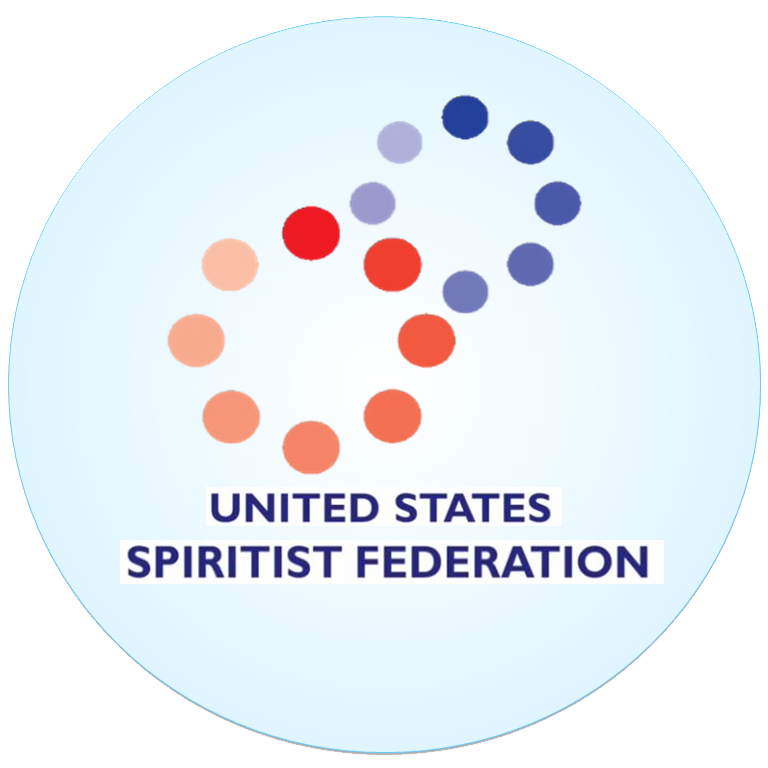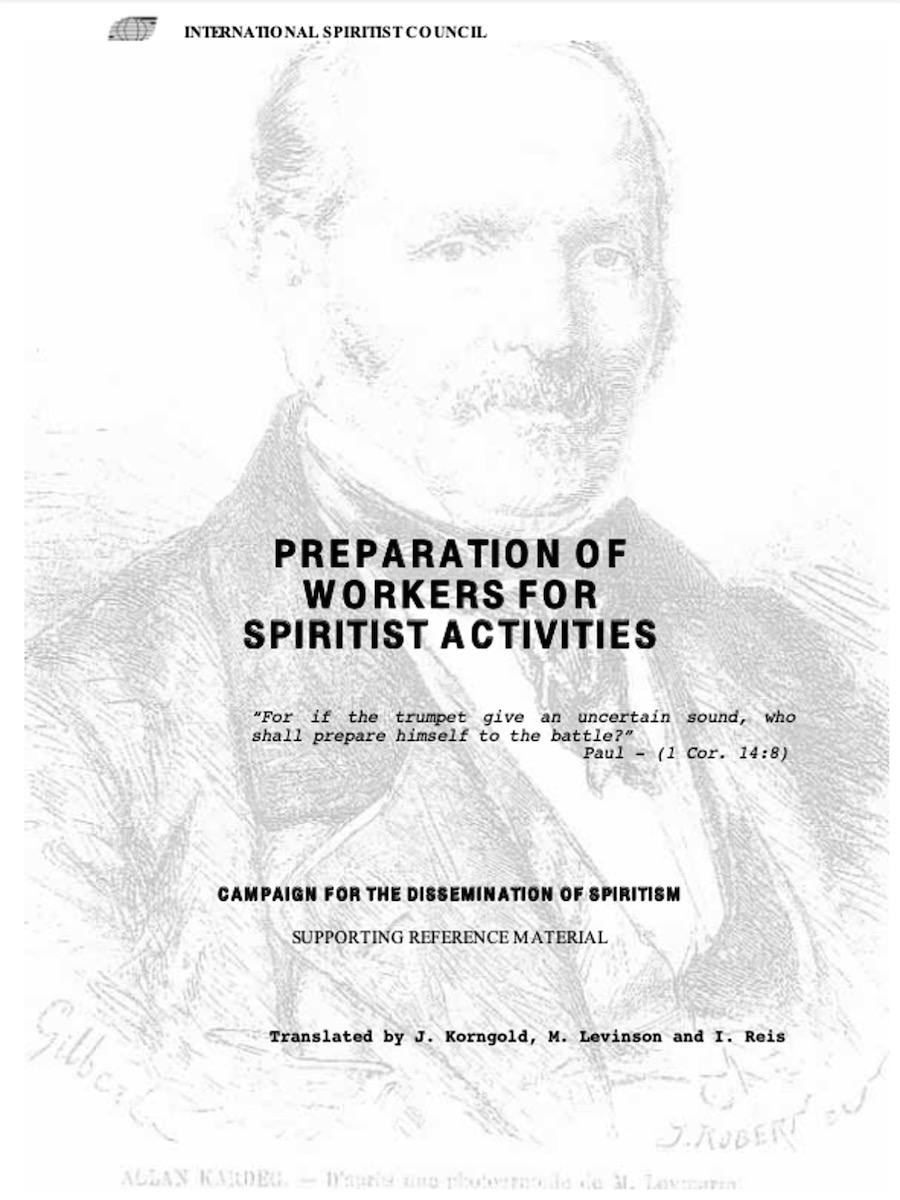Membership

Membership
All Spiritist Organizations located in the United States are welcome to apply for membership with the USSF.
Please contact us with the following information.
– A letter of intent of becoming a member
– Copy of your organization’s bylaws
– Copy of your organization’s state incorporation letter
– General Member Information Form filled out
– Copy of 501(c)(3) certificate – when applicable
Benefits


– Your group contact information will be listed in our website as an affiliated member.
– You will find in our website useful material for presentations, talks, seminars, workshops, posters, courses, brochures, etc.
– In the USSF website there is a member only session. It contains current financial reports and the USSF legal documents.
To access the members area please click HERE
– Members have a special 40% discount on purchases over $100 on all the USSF’s books.
– As part of the USSF outreach program your group will have the opportunity to participate in online trainings, meetings, and whenever possible personal visits by a member of the USSF, or representatives of this organization.
– If your group ever has an emergency, USSF offers help through the SEED program, where your situation can be evaluated and, if approved, you can borrow a certain amount of money depending on availability.
– Your organization is entitled to participate in our Annual General Meeting and be part of the decision making of the Spiritist Movement in the US.
– The USSF has purchased a subscription to offer its members a shared virtual platform (ZOOM) for their spiritist meetings, for up to 100 people. First come, first serve. USSF zoom account is called SPIRITISM ONLINE.
– A total of two of your board members can be included at the USSF Member WhatsApp group. This is an opportunity to share information regarding the US Spiritist movement, and to be up to date with Spiritist current events.
– USSF is affiliated to ISC (CEI) – International Spiritist Council and by extension you are part of the Spiritist movement worldwide. Check the website www.cei-spiritistcouncil.com to learn more about it.
– What is the most important thing to disseminate Spiritism?
“Union exists between all spirits, but in varying degrees according to their ranking, or their degree of perfection. The closer to perfect, the more united they are. Disharmony produces all the problems of human life, while harmony generates perfect happiness.” – TSB #298

Formation of NEW CENTERS
1. Spiritist Meetings and Spiritist Books.
Spiritist study meetings utilize primarily the five books of Kardec’s Codification (The Spirits’ Book, The Mediums’ Book, The Gospel According to Spiritism, The Genesis, and Heaven and Hell), as well as other complementary materials. Mediumistic sessions should only be carried out with workers prepared for this practice and under the supervision and assistance of persons responsible and experienced in such meetings.
2. Name for the Spiritist Group/Center.
A group that meets regularly should choose a name for itself. It is always advisable to choose a name in English for centers in the U.S. Allan Kardec Spiritist Study Group of [insert name of your city or state], or Spiritist Society of [insert name of your city, county or state] are always good choices. Of course there are other names that reflect the practice of the Doctrine – simple and dignified. Once the name is chosen – congratulations! – send the information together with address and contact to the USSF for website posting.
3. Guidelines for the Formation of Spiritist Centers and Spiritist Workers. See documents below:
– Guidelines to Spiritist Groups, Centers and Societies
– Preparation of Spiritist Workers
– SAMPLES of By-Laws: version (Word) (PDF)
Look up this very important pamphlet that can be reproduced for free distribution:
> Get to Know Spiritism
FAQ – Formation of New Centers
FRegistration of Spiritist Organizations:
1-How should a Spiritist Center be classified in the Internal Revenue Service (IRS) application for 501(c)(3) tax-exempt organizations?
Under the 501(c)(3) classification for non profit organizations, the following are listed: Religious, Educational, Charitable, Scientific, Literacy, Testing for Public Safety, To Foster National Amateur Sports Competition, or Prevention of Cruelty to Children or Animal Organizations. (IRS Publication 557: Tax Exempt Status for Your Organization (1997). Please contact a tax professional to find out exactly what classification best fits the type of activities your organization will be involved in.
2-What about registering as a club under 501(c)(7) to qualify for some form of exemption?
The descriptions of the general activities for an organization as a club are “Pleasure, recreation, social activities.” (“General Nature of Activities” – IRS Publication 557: Tax-Exempt Status for Your Organization (1997)). Clearly the objectives of a Spiritist organization are not met under a club classification.
3-And a classification as an educational entity?
Some states might require registration under their Board of Education along with other requirements. Inquiries should be directed to pertinent agencies in the state where the incorporation is being sought to ascertain if the application is viable.
4-Regarding the religious aspect of Spiritism, what are the implications under the separation of state/church when a Spiritist organization makes use of a governmental facility (e.g., a school classroom) for their meetings? Should Spiritist organizations omit their religious aspect in order to benefit from such an arrangement?
As long as the Spiritist groups/organizations are separated from the public school educational system, there are no implications for the use of classrooms, so long evidently as permission has been granted for such, with the agreement that the rules and regulations for this usage are followed as they would for any assembly. What non profit organizations are strictly prohibited of is discrimination against sex, religion, race, etc., in their meetings.
5-Is it possible for the USSF to offer materials regarding these matters?
The USSF can only offer these general guidelines, along with samples of articles of incorporation and bylaws. It is not empowered to dispense legal advice, and it can bear no responsibility in the independent decisions of Spiritist organizations as far as the structure and purposes chosen for their incorporation and governance. Moreover, there are different requirements for Spiritist entities subject to the rules and regulations of the states wherein their applications are filed.
See the link below for additional information:
http://www.usa.gov/Business/Incorporate.shtml




